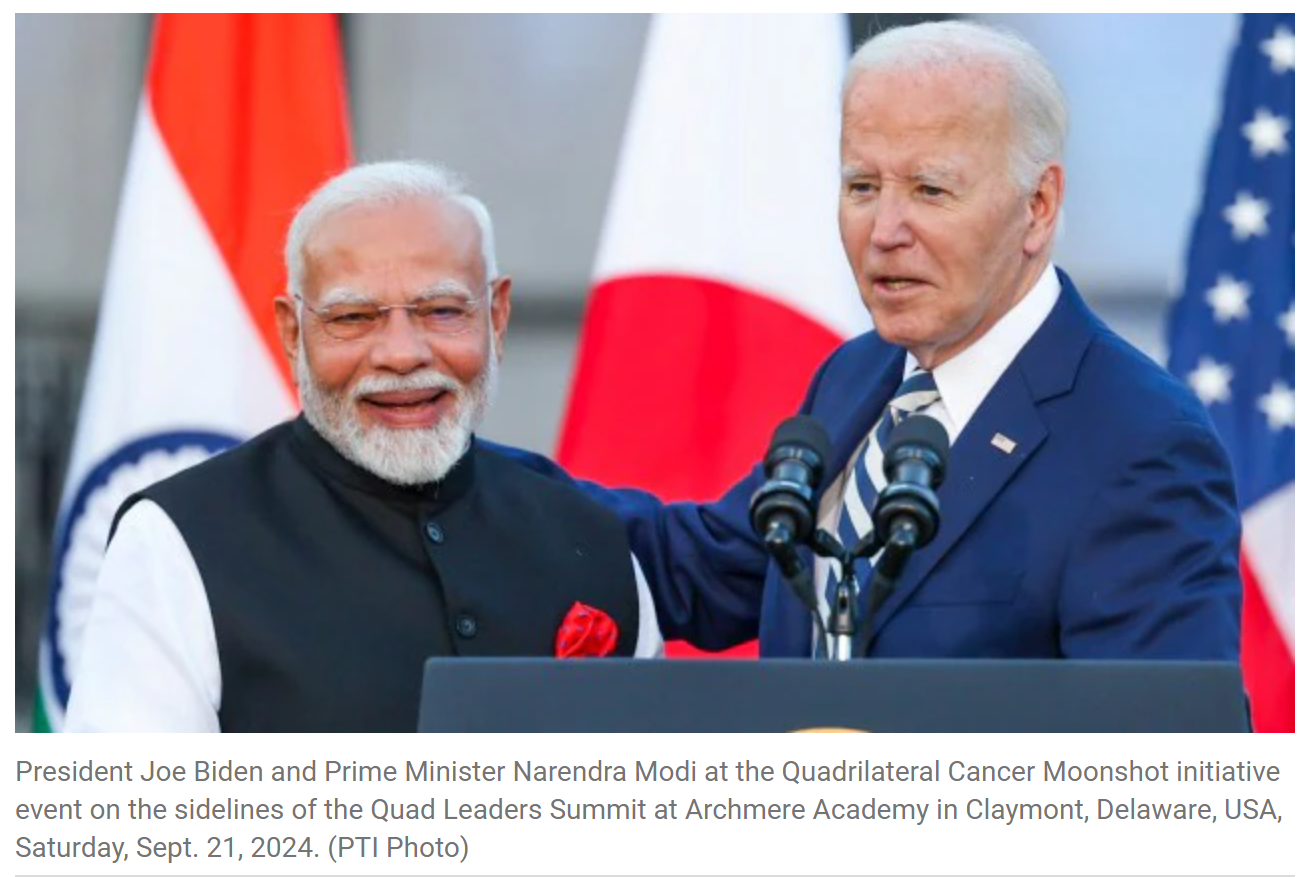INDO-PACIFIC ECONOMIC FRAMEWORK (IPEF)

- 23 Sep 2024
In News:
India signed agreements within the US-led 14-member IPEF focused on a clean and fair economy.
- Objectives:
- Facilitate development, access, and deployment of clean energy and climate-friendly technologies.
- Strengthen anti-corruption measures and promote tax transparency among member countries.
- Clean Economy Agreement:
- Aims to accelerate energy security and mitigate greenhouse gas (GHG) emissions.
- Focuses on innovative methods to reduce reliance on fossil fuels and promote technical cooperation.
- Fair Economy Agreement:
- Seeks to create a transparent and predictable business environment to enhance trade and investment.
- Emphasizes information sharing, asset recovery facilitation, and strengthening cross-border investigations.
- Funding Mechanisms:
- IPEF offers platforms for technical assistance and concessional funding.
- IPEF Catalytic Capital Fund: Initial grant of $33 million aimed to catalyze $3.3 billion in private investments.
- PGI Investment Accelerator: Received $300 million from the US International Development Finance Corporation.
- Concerns Raised:
- Experts highlighted concerns over the secrecy of IPEF negotiations with limited public input.
- Expressed hope that India has not agreed to a non-derogation clause that could limit domestic regulatory flexibility for national projects.
- Potential Risks:
- Most standards discussed in IPEF are aligned with those in the US and OECD countries.
- India risks compliance pressures in future trade deals if it adopts these standards without adequate preparation.
- Strategic Importance of IPEF:
- Involves 14 member countries, focusing on economic cooperation through four key pillars: trade, supply chain resilience, clean economy, and fair economy.
- Represents 40% of the global economy and 28% of world trade, highlighting India's commitment to regional partnerships alongside the US, Japan, Australia, and other Indo-Pacific nations.
